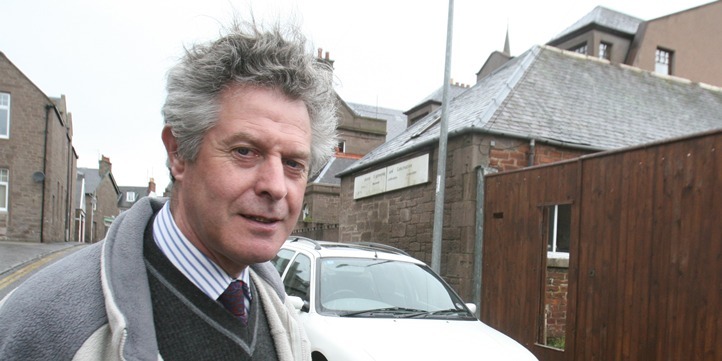Community councils in Angus still have a relevant role to play in local democracy and represent good value for money, according to a former chairman forced to demit office after some bitter in-fighting.
There are 26 community councils in the county which last year cost Angus Council just short of £28,500 in financial support, not counting the cost of council officer time given over to dealing with queries and complaints, which the council says has not been appraised.
Now that axes are being sharpened for the cuts to come, critics say community councils many of which have become closed shops, should be first for the chop.
But Brechin businessman Douglas Murray said, “Yes, some people do join up for the wrong reasons, to be seen and heard, and with their own agendas, who tend to dominate proceedings.
“But there are some doing an excellent job, and taking opportunities to start up particular projects and effect change for the local good.”
He was forced to resign as chairman of Brechin Community Council after a bitter six-month feud, ending 20 years’ service, including 10 as secretary of the Association of Scottish Community Councils. The body is still without a new chairman.
But he is now developing a website to provide information about and to community councils across the country.
He said, “I still have links across Scotland with others on community councils who share feelings on the need for such bodies and will continue to keep a strong interest in their development.
“I have no intention of losing touch in respect of matters affecting communities and will continue to advocate for them as and when required.”
Community councils were introduced in 1975 when local government was reformed, with the objective to ensure there could be input from the grassroots.
In Angus, each community council receives an administrative grant, averaging around £500 a year. Last year the council also approved a fund of £26,000 to enable community councils to purchase computer equipment, and a £240 annual grant is also payable to those now communicating electronically. The council also provides funds for special projects through its grant aid schemes.
Some council services also provide non financial support through Christmas lighting road closures and use of premises. Others provide in-kind support such as Neighbourhood Services who offer free photocopying through the council’s Access offices.
But the majority of community councils never have enough candidates for an election, so those putting themselves forward automatically take up the seats automatically with no mandate from the people they are supposed to represent. Members tend to be in the 50-60 age group and continue in office for the long term.
Ferryden is running at around half its capacity of 12 members and has issued an urgent appeal for new blood, and in Montrose recently a row erupted when two candidates who wanted to join were effectively blackballed.
“Brechin and Montrose have both had their difficulties,” said Mr Murray. “But here in Angus all community council members officially step down in September. and hopefully that will bring a fresh input.”
“It can be difficult to attract younger people. They can come in full of enthusiasm but quickly get fed up when they see it’s only about sitting around a table, talking around each other and shuffling paper about.
“It’s only when they see something that can actually be of benefit with some kind of physical project that they get energised.”
He suggested that money was being wasted on developing town partnership groups where even members themselves have questioned their role. He said, “It seems the two are going down the same route.”
A council spokeswoman said the overall costs of the community councils was not something being looked at in the current spending review.
Angus corporate services convener, Mark Salmond said, “I fully support the principle of having community councils. They are statutory consultees in planning and licensing board applications.
“But I would appeal to more people to stand in the forthcoming elections. We need to have groups of people aged 16 and up, much more representative of the communities they serve.”
